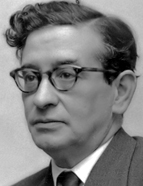

Manuel Múrias was born in Carrazeda de Ansiães, in the district of Bragança. He was the son of Manuel Maria Múrias, at the time a clerk and notary in the same district, and Emília Jesus Múrias. At a young age he moved with his family to Lisbon, where, in 1922, he graduated in Romance Philology from the Faculty of Letters. He then began a teaching career as a primary school teacher while also pursuing a career in civic and political intervention. From 1922 he was associated with Lusitanian Integralism, of which he was a second-generation member. He distanced himself from the movement, disassociating himself in 1928 along with other young people such as Pedro Teotónio Pereira, Rodrigues Cavalheiro, and Marcelo Caetano. In the 1930s, he joined the Grand Council of the National Trade Union Movement but gradually drifted towards the conservative solution that would crystallise around Oliveira Salazar, and he became part of the group that decided in 1933 to abandon the "blue shirts" and join the União Nacional [National Union]. From then on, he was one of the Estado Novo's unequivocal supporters. In 1939, he said of the new regime that it was the only solution that unequivocally restored "the sense of continuity that had been lost by returning to the permanence of our centuries-old activity [...] instead of trying to adapt foreign formulas and norms" ( Portugal: Império, 1939, pp. 15-16), a view that, despite all else, was still in line with the integralist proposals of his youth. In the structure of the new regime, he held a series of important technical and political positions until the end of his career: secretary and member of the Junta de Educação Nacional [National Education Board]; inspector of colonial education; secretary-general of the Congress of Portuguese Expansion in the World; member of the National Commission for the Centenary Commemorations; director of the Colonial Historical Archive and censor of the Academia das Ciências de Lisboa [Lisbon Academy of Sciences]. He was also a member of the National Assembly for four terms between 1942 and 1957. Throughout his life he also directed a series of periodicals, most notably A Revolução Nacional, Nação Portuguesa, Ocidente [National Revolution, Portuguese Nation, West] and Acção , to which he made the most significant collaborations, and the official organ of the União Nacional , the Diário da Manhã [Morning Journal]. He also collaborated with other publications, such as Bandarra, A Época [Epoch] , A Voz [The Voice] , Brotéria, Mundo Português [Portuguese World] , Revista do Ultramar [Overseas Magazine] , Gil Vicente, Revista da Cultura [Culture Magazine] and Pátria [Homeland] .
This work is financed by national funds through FCT - Foundation for Science and Technology, I.P, in the scope of the projects UIDB/04311/2020 and UIDP/04311/2020.
